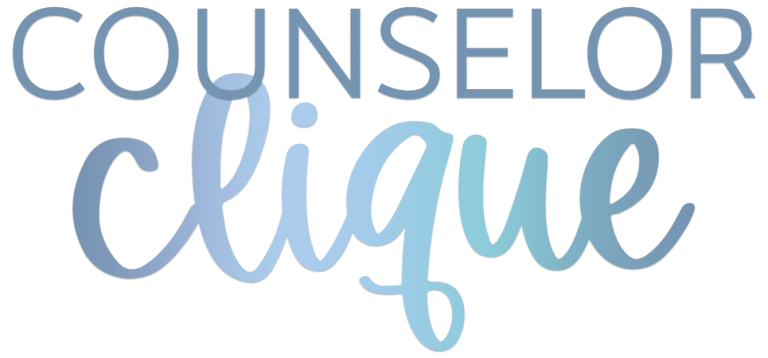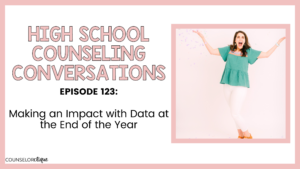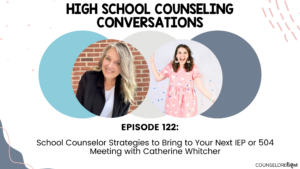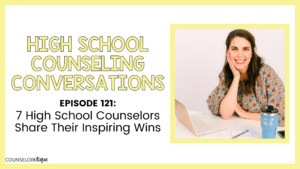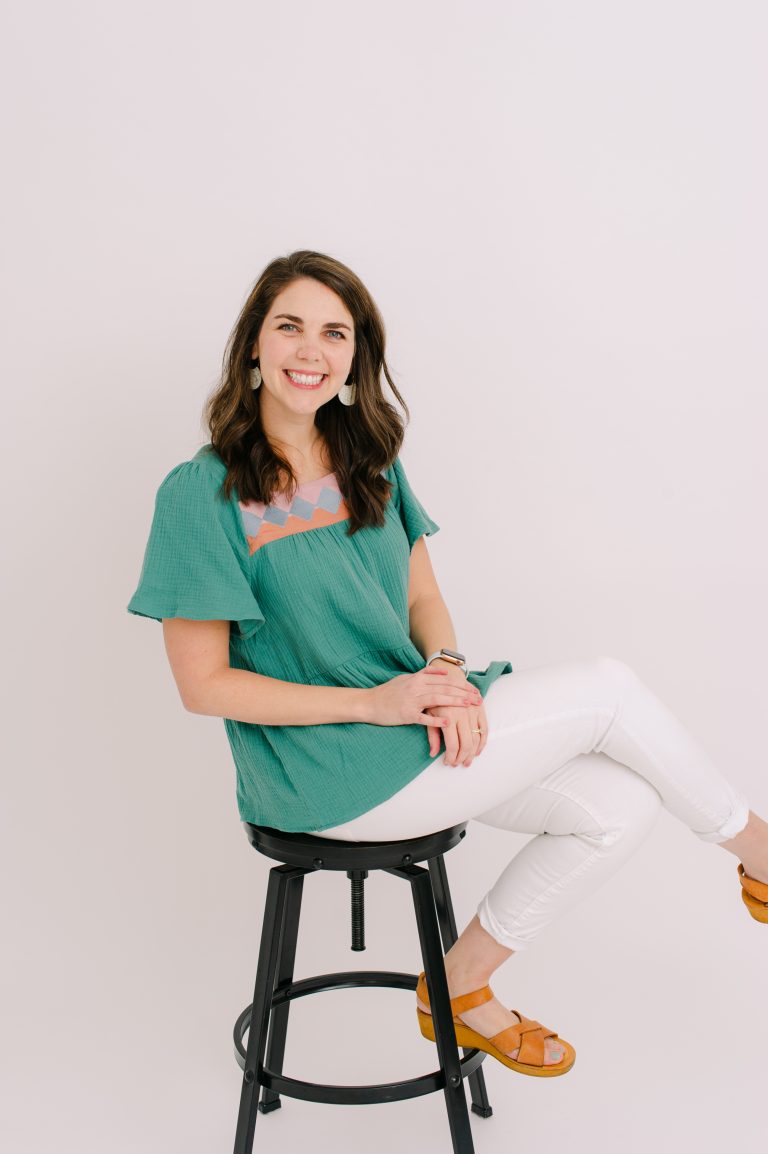
Here's What to Expect In This Episode:
We all want our students to find success after high school and do everything in our power to get them to where they need to be by graduation. This idea of “success” is different for everyone, as is the path to get there.
In today’s climate, there are so many options for students post-graduation. A traditional four year college isn’t for everyone. However, there are students who want to pursue college, and we don’t want them to be overlooked.
If you’re trying to increase college access on your school’s campus, I have some things for you to consider. Specifically, I have three assumptions I want you to avoid making when promoting college access. From identifying first gen students, to supporting student athletes, to tapping into your expertise on scholarships, together we can empower our students!
Topics Covered in This Episode:
- Don’t assume all your first gen students know that they’re first gen
- Examples of different definitions of ‘first generation’
- Don’t assume that your athletes have coaches walking them through the sports process
- Partnering with coaches, parents, and athletic directors as a way to increase college access
- Don’t assume that your students know how to find and apply for college scholarships
- How to increase students’ chances of getting a scholarship
- Viewing your counseling program with an MTSS mindset
Resources Mentioned in This Episode:
Read the transcript for this episode:
0:01
If you’re up north, maybe you’re just diving back into school. If you’re down south, you’ve been at it for maybe almost a month now. We might be on slightly different timelines. But let’s just agree it moves quickly, we dive in and we are moving fast.
0:16
Once students are in their classes, you’re already thinking about parent info nights and financial aid nights, individual planning meetings, college applications, and all the things. In this week’s episode, we’re going to chat about college specifically, there are three assumptions I do not want you to make if you’re trying to increase college access on your school’s campus.
0:36
I’d say most of us are trying to do this really well. We know that four year college isn’t for everyone. But there are so many paths to get to success. And everyone defines success differently. I’m all for that. But for those students who want to pursue a two or four year path to college and need some extra help to get there, I don’t want that to be overlooked. I don’t want them to be overlooked.
0:57
So let’s get into some assumptions to avoid when we’re trying to promote that college access on our campus.
1:08
You got into this profession to make a difference in your students lives, but you’re spread thin by all the things that keep getting added to your to do list. I can’t create more hours in the day, but I can invite you into my counselor click where you’ll finally catch your breath.
1:21
Come with me as we unpack creative ideas and effective strategies that will help you be the counselor who leaves a lifelong impact on your students. I’m Lauren Tingle, your high school counseling hype girl here to help you energize your school counseling program and remind you of how much you love your job.
1:39
First, don’t assume that all of your first gen students know that they’re first gen. The term first generation can be really tricky. people define it in all different ways. And I’m talking counselors in high schools, counselors at college like admissions counselors and even families. There are a few different definitions but not one that everybody lands on, which is kind of annoying when you think about it, right?
2:02
Probably the most common definition is that the parents don’t have a four year degree. Sometimes students think that because they have or had a cousin or a sibling go to college that they’re not first gen. The bigger idea here to consider is that the parent would have the knowledge to help a child go through the college application process.
2:24
Because they’ve been through the process. They’ve lived through that experience, and they’ve graduated college. And it’s also important to note that that person is living in the home where the student is so that they could provide that help.
2:35
So if a student doesn’t have one of these people, then they’re first gen and they might not even know it. So what does that mean for you as a high school counselor? It means that you probably have to bring this up in conversation. It’s not a label that we can see on a student. And it’s probably not even listed in their enrollment information or on forms that come from the district.
2:55
But it’s still a piece of a student’s identity. And we want to value that, I’d encourage you to look for ways to identify the students or let the students self identify. So whether that third needs assessment or a survey forms for their letters of recommendation, though, I hope you get to know this earlier on if you’re working with all grade levels, individual planning meetings or post secondary planning appointments, and so many more opportunities.
3:19
These students have a ton to gain from your wisdom, your experience and your counsel. Your support will be an extremely validating part of their success that you help them to achieve in high school and beyond. Now, if you are a first gen student, you can probably think of the people that did this for you and the people that held your hand or encouraged you or cheered you on through the process.
3:42
I did a whole episode on this back in episode 41. Just on supporting first gen students with some tangible examples. If you do want to dive deeper into this topic.
3:51
We’re going to move on to the second assumption that I don’t want you to make. Don’t assume that your athletes have coaches walking them through the sports process. Now I will say straight up from the beginning. This is not my area of expertise. Mostly because I did have awesome coaches and athletic directors at my school when I worked there helping students through this process.
4:12
I personally did do the ASCA You college specialist training, which touched on this. And so that was helpful. And I’ve been to plenty of other professional development opportunities where I’ve learned all about NCAA and the eligibility center. They have webinars that you can watch through their website too, that are super helpful. I know enough to get by.
4:29
I’ve always been wary, though to go all in here because it feels like a really big liability. Like parents are usually really invested here. Students are really invested. If you say the wrong thing, or put them in the wrong class. It just feels like a lot of weight and a lot of liability on you as a high school counselor.
4:48
So especially when I know that there are more experienced people or smarter people in this realm, and maybe that’s impostor syndrome. Now that I’m saying it but we do know more than the average person but if there is someone in your school who has this knowledge, I would say I’m going to talk about this here in a second. But let’s touch base and partner with them.
5:08
So maybe the assumption here, it goes two ways. Don’t assume that your students have a coach to help them through this at all. But on the other hand, don’t assume that the coach is doing all of this. Working with athletes in your school is actually a great opportunity for you to partner with coaches, parents, and the athletic director, maybe just the star student athletes are the ones getting the attention that they need to fill out the right forms.
5:33
There are some other students who are probably capable, but are just not being pushed in this direction. I had a student athlete sit on our advisory council one year where we were asking for feedback as counselors on our programs and the ways that we were serving students. And I was so glad when he spoke up on behalf of student athletes, because that was kind of his identity in the school, on the way that we were serving our students.
5:55
He said that he felt like the student athletes could use some more support. So from there, we brainstormed and we decided we need to be partnering with parents and coaches at those student team interest meetings at their team general meetings, like once they were on the team, things like that.
6:11
So we could share information that they all want to hear as early as possible, it does not need to be a last ditch effort to give them that information right before they head off to college like this starts so much earlier.
6:24
And these student athletes need to hear things like that their grades matter really early on. And then even just to be the person in the school who shares with students what we can offer them in the way of help through the NCAA eligibility portal. Like we get to sit down with a student and we can walk them through that while their teacher is teaching class, you know, not just during their sports team time when the coach has to sit down with them. Like that’s something that we have time and energy to be able to do.
6:50
We can help students understand those scholarships that they’re applying for. We can help them send transcripts to the school to the coaches, to the scholarship opportunities. We underestimate our knowledge about this process. And by we I mean, I’m saying I definitely do this, but we know more than the first time parent of a high schooler dose or we know more than a freshman athlete knows.
7:12
This is your encouragement not to overlook your student athletes, but instead make some tiny program tweaks to reach those students, even if it’s in a really broadly reaching way. This will still make an impact in your school and you will be reaching those niched corners of the school that maybe you hadn’t touched in the past.
7:32
The Clique Collaborative is a membership for high school counselors designed to equip, encourage and connect counselors to their greater community. With a professional development driven mindset, the membership hub comes loaded with 25 Plus instantly accessible PD videos, completion certificates and bonus features like templates, checklists and counseling resources.
7:52
But the best part isn’t the features. It’s the changes you’ll see in your confidence and your counseling program. Inside you’ll find worthwhile practical and applicable PD that propels you to action and a community full of your people where you can grow, connect and feel validated. Does this sound like the support you’ve been looking for? If so, I want to invite you to check out the Clique Collaborative at cliquecollab.com.
8:18
The last thing I don’t want you to assume if you’re looking to increase college access on your school’s campus, don’t assume that your students know how to find and apply for scholarships. Now, if you’ve been at this for any length of time, I think you know that students don’t know how to do this. Or maybe they just don’t care to do this on their own.
8:37
So we are tempted to make just one announcement here and there or just to tell them that there are lots of scholarships out there and hope that they do it. Because you’re juggling a million things. So rightfully so you would make some announcements and carry on with all of your responsibilities.
8:53
You are the PR managers of all of these local and national scholarships, trying to get the word out about their thing. You have school based scholarship committees breathing down your back telling you that they don’t have enough students applying for their $10,000 scholarship for those majoring in German polka music. Like how are you supposed to go out and find students for this thing, but they expect you to do it, they expect you to go recruit for them.
9:16
But I know you. You certainly don’t have the time to chase down those students around every corner and tell them about every single scholarship and then make them fill out the scholarship forms. I often felt like a broken record telling students.
9:29
The students who filled out the most scholarship applications, the ones who were in my office asking for copies of their transcripts to be sent out to those scholarship committees. Those were the students who were earning the scholarships. I would tell students this all the time.
9:43
So how do we hit them from all angles about scholarships so that we can increase college access on our schools campus? We don’t want finances to be a hindrance to students being able to get to college but so much of the time it is or at least that’s their perception and we need to change that
10:00
They need to know that with the rights of words, they can get it together and they can get to college. You can come at scholarships and financial aid from a multi tiered approach. You’re going to over communicate these things until you’re blue in the face. Just a fair warning here. Let me give you an example of something that you could do maybe in each tier of support in your school for promoting scholarships.
10:22
Onn a broad tier one scale, are you going into classrooms early and often to share about the financial aid process in general, and then explaining what things are going to be important when a student gets to this point in time? Are you making the scholarships that you do have accessible to everyone?
10:38
So is there a Google Classroom that students can pop in to get your information from? Or is there a master spreadsheet that you can add scholarships that students can see all the time, maybe they can bookmark it and keep coming back to it, I’ll include a free one for you to use in the show notes, or you can find it right now at counselor clique.com/scholarship.
10:57
Secondly, you could run a small group or some workshops that are strictly focused on financial aid or combine it with our first assumption that I mentioned and run a first generation small group and combine these two needs. Here, you’d have a smaller group of committed students right in front of you.
11:13
You can host these workshops or small groups before or after school or during lunch. Or if you have seniors, and they have an early dismissal or they come late to school with a late arrival, you can consider working something like that into their schedule and your schedule.
11:26
And lastly, individual counseling for those tier three needs. Don’t get complacent when you just feel like you’re having the same conversations over and over again with your students about scholarships and how they work. From the state scholarships to the ones that everyone is applying for. Sometimes you just feel like you’re a robot and no one is listening.
11:45
Make it your mission to find the right student for the right scholarship. There is nothing like an individual touch point or a personal invitation for a student to apply for a scholarship. And listen, I know this is not possible for every single student and for every single scholarship, it’s just not.
12:01
But if it’s the right student make an effort to go after them and to tell them about it. Then on the other hand, working closely with an individual students through their financial needs package or their financial aid package, and getting them that opportunity to attend college that they never even thought was possible. It is so completely worth it.
12:20
It’s worth the individual time that you’ll spend with that student. And if necessary in the scheme of things as you’re looking at your program with that MTSS mindset. Some students will get the information they need from the broad, large scale classroom information that you’re dishing out there.
12:34
Some will find the information on their own, but some will need you walking them through every single step of the way. It’s not a bad thing. It’s just what you’re there for. So don’t make the assumption that everyone can do it with just your school announcements going out or just whatever you’re doing in your school right now.
12:51
Wow, that was a mouthful. I had really a lot of fun doing this episode, we touched on three very different topics that can all promote or hinder college access depending on what direction you go. And I hope it gave you some new ideas or new ways of thinking about college access in your school, how it’s currently done, and maybe some goals you have for how it could change in the future.
13:11
Don’t forget to head to the show notes and grab your free scholarship spreadsheet. If you already have it, go redownload it I’ve updated it for this school year. So go to counselorclique.com/scholarship I’ll see you next week.
13:26
Thanks for listening to today’s episode of high school counseling conversations. All the links I talked about today can be found in the show notes and also at counselorclique.com/podcast. Be sure to hit follow wherever you listen to your podcast so that you never miss a new episode. Connect with me over on Instagram. Feel free to send me a DM @counselorclique. That’s C-L-I-Q-U-E. I’ll see you next week.
Connect with Lauren:
Cheers + Happy Listening!
Like what you’re hearing? Follow and leave a review on Apple Podcasts. It helps other high school counseling friends find it!
Can’t contain your excitement? Share the pod! Tell a friend! Your word-of-mouth referrals mean the world to me!

